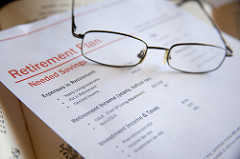A Detailed Guide To Retirement Planning, by Flavio J. “Joe” Carreno

Getting prepared for retirement requires constant savings, investments, and successfully minimizing accrued fees and penalties. You can have more savings in a shorter time if you use your workplace retirement benefits optimally. You can also build your nest egg quickly if you take advantage of government programs such as Medicare and social security.
Here is how to build the best financial plan for your retirement
Regularly save.
Saving is one major thing you must do when planning for retirement. It is better to start saving a portion of your paycheck as early as possible. During retirement planning, many financial experts recommend saving 15 percent of one’s paycheck every year. Even if you can’t save this percentage, save a lesser amount and then raise it each time your earnings increase.
Take maximum advantage of your 401(k) match.
Suppose your employer allows a 401(k) match; you need to have enough savings before you can assess the maximum possible 401(k) match. With your employer’s 401(k) match, you can make higher returns from lower contributions. At the same time, your investment will keep growing and earn more money for you over time.
Maximize retirement planning tax breaks
In 2020, you can defer income tax on amounts up to $19,500 and $26,000 (for seniors above 50) when you make your contributions into a traditional 401(k) plan. When you do this, you will not pay income tax on these contributions until after withdrawal. On the other hand, you can make tax-free withdrawals during retirement when you save after tax-dollars into a Roth 401(k) account.You may be qualified for saver’s tax credit if you are saving for retirement and you are a low or moderate-income employee. The saver’s tax credit allows you to make more savings over a long period.
Open an individual retirement account (IRA)
You can save in an individual retirement account if you don’t have an existing 401(k) plan. An IRA is not attached to your job and gives similar tax breaks to a 401(k) plan.In 2020, the IRA limit was $6,000 and $7,000 if you are 50 years old or above. You can still save in an IRA or 401(k) plan in the same year if your income is lower than the specified income cutoffs. Whenever you change your job, you can easily manage your finances by rolling your savings to an IRA from a 401(k) plan.
Select the best retirement investment allocation
Retirement savers should select a low-cost mix of bonds and stocks depending on their risk tolerance. Young savers can take more risk because they have an extended period to recover from a stock market downturn. You should shift to a more conservative investment as you move closer to retirement. You don’t need to be too conservative such that your ability to overcome inflation over time (purchasing power) is at risk. The reason is that if you want your money to sustain you in your later life, you must participate in the stock market.
Reduce your retirement account fees
Building your retirement nest egg seems challenging when you have many fees in your retirement accounts. Your retirement savings will be low because fees minimize the returns from your investment. 401(k) fees vary widely, and when you have low investment fees, you will have less deduction from your long-term investment returns.
Ensure that you qualify for your employer pension plan
The majority of employers no longer give their employees pension plans, but few employers still provide traditional pension plans. Traditional pension plan promises employees guaranteed payments during retirement. Most government jobs, large companies, and union positions still offer traditional pension plans. However, you might need to work in a particular position for a certain period before you can qualify for this pension plan. Therefore, people that frequently change their job might not be eligible for a pension plan even if their employer provides one.
Increase your social security benefits
A major decision you need to make as you are getting closer to retirement is when you should sign up for social security. Suppose you sign up for the program before your full retirement age; your payment will reduce. Still, if you delay your payment till when you are 70 years, your payment will increase for every year you delay it. If you are married, you can maximize your benefits when you and your spouse coordinate your decisions. Your retirement payout will be affected if you delay your social security benefits or continue working during retirement.
Build your estate plan
You should make a clear path for your finances and medical wishes if you want to make life easier for your children and relatives. Make a Will and put an advance medical directive in place. Besides, ensure that the beneficiary designations on your accounts are current and up to date. When you make an estate plan, you have the assurance that your assets will be given to the right and designated individuals.
Contact Information:
Email: [email protected]
Phone: 8139269909
Bio:
For over 30-years Flavio “Joe” Carreno of The Retirement Advantage has been a Federal Employee Retirement System specialist (FERS) as well as a Florida Retirement System specialist (FRS) independent advocate. An affiliate of PSRE (Public Sector Retirement Educators), a Federal Contractor & Registered Vendor to the Federal Government, also an affiliate of TSP Withdrawal Consultants. We will help you understand your FERS & FRS Benefits, TSP & Florida D.R.O.P. withdrawal options in detail while recognizing & maximizing all concurrent alternatives available.Our primary goal is to guide you into retirement with no regrets; safe, predictable, stable, for life. We look forward to visiting with you.
Disclosure:
Not affiliated with the U.S. Federal Government, the State of Florida, or any government agency. The firm is not engaged in the practice of law or accounting. Always consult an attorney or tax professional regarding your specific legal or tax situation. Although we make great efforts to ensure the accuracy of the information contained herein we cannot guarantee all information is correct. Any comments regarding guarantees, safe and secure investments & guaranteed income streams or similar refer only to fixed insurance and annuity products. Fixed insurance and annuity product guarantees are subject to the claimsâ€paying ability of the issuing company. Annuities are long-term products of the insurance industry designed for retirement income. They contain some limitations, including possible withdrawal charges and a market value adjustment that could affect contract values. Annuities are not FDIC insured.








